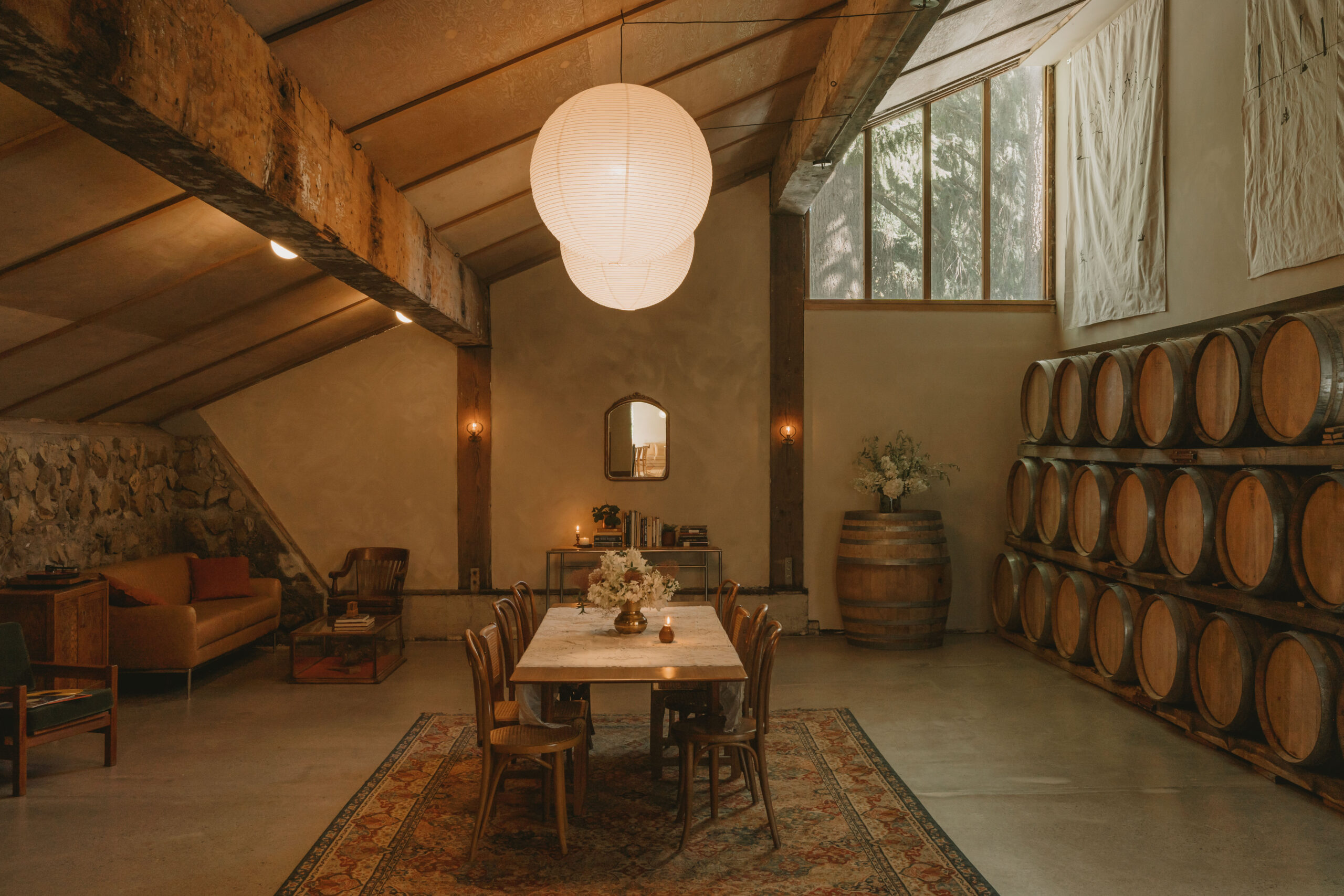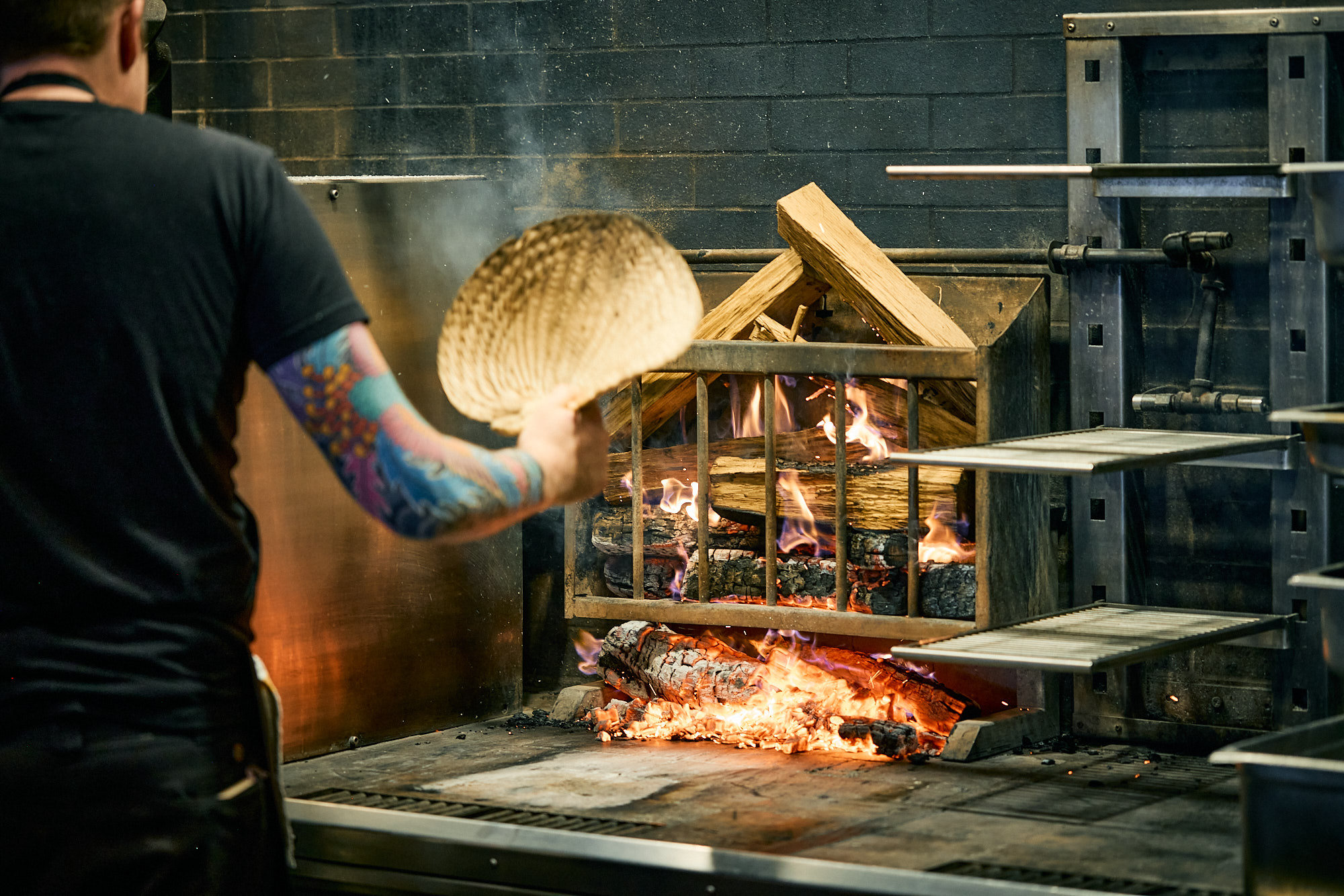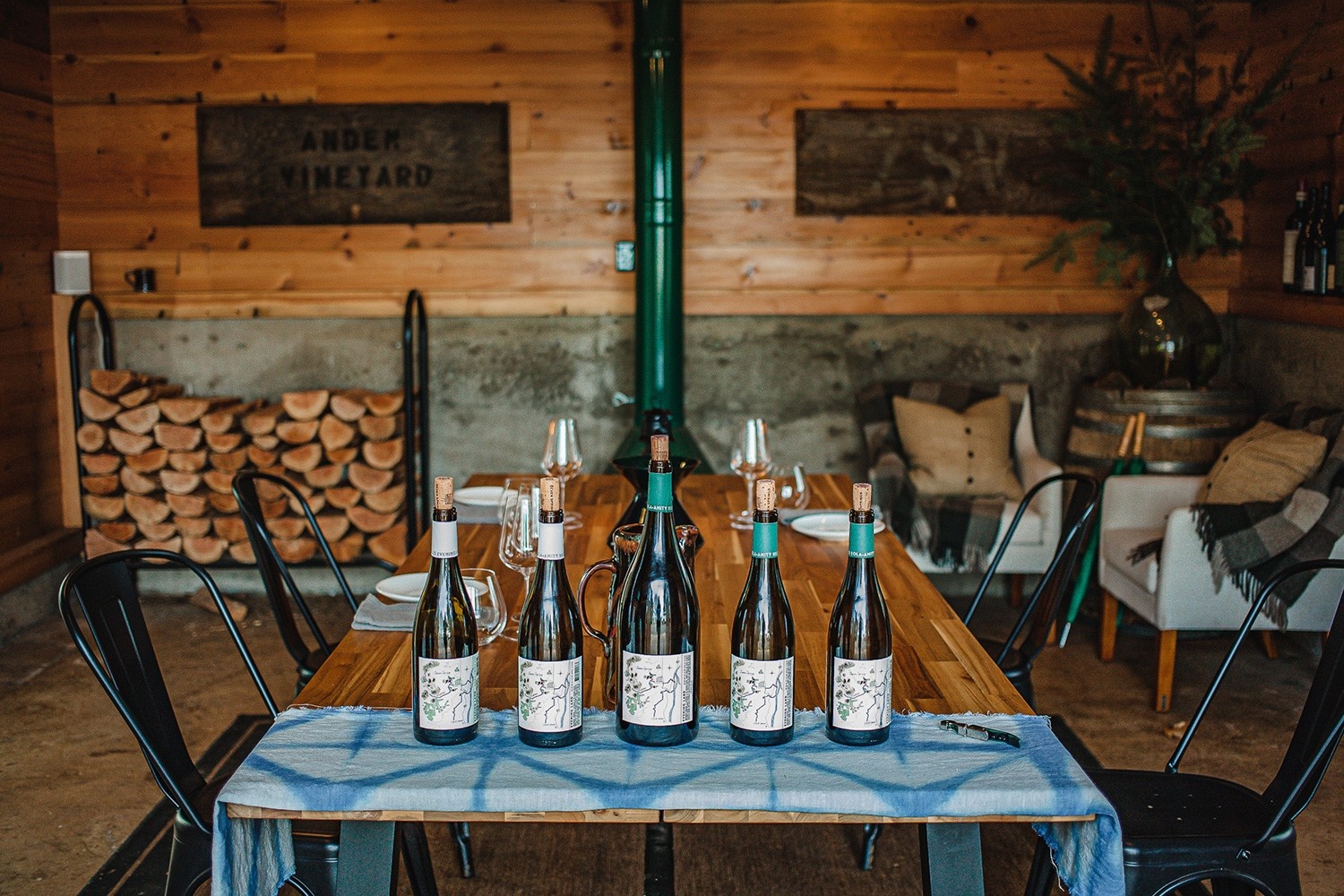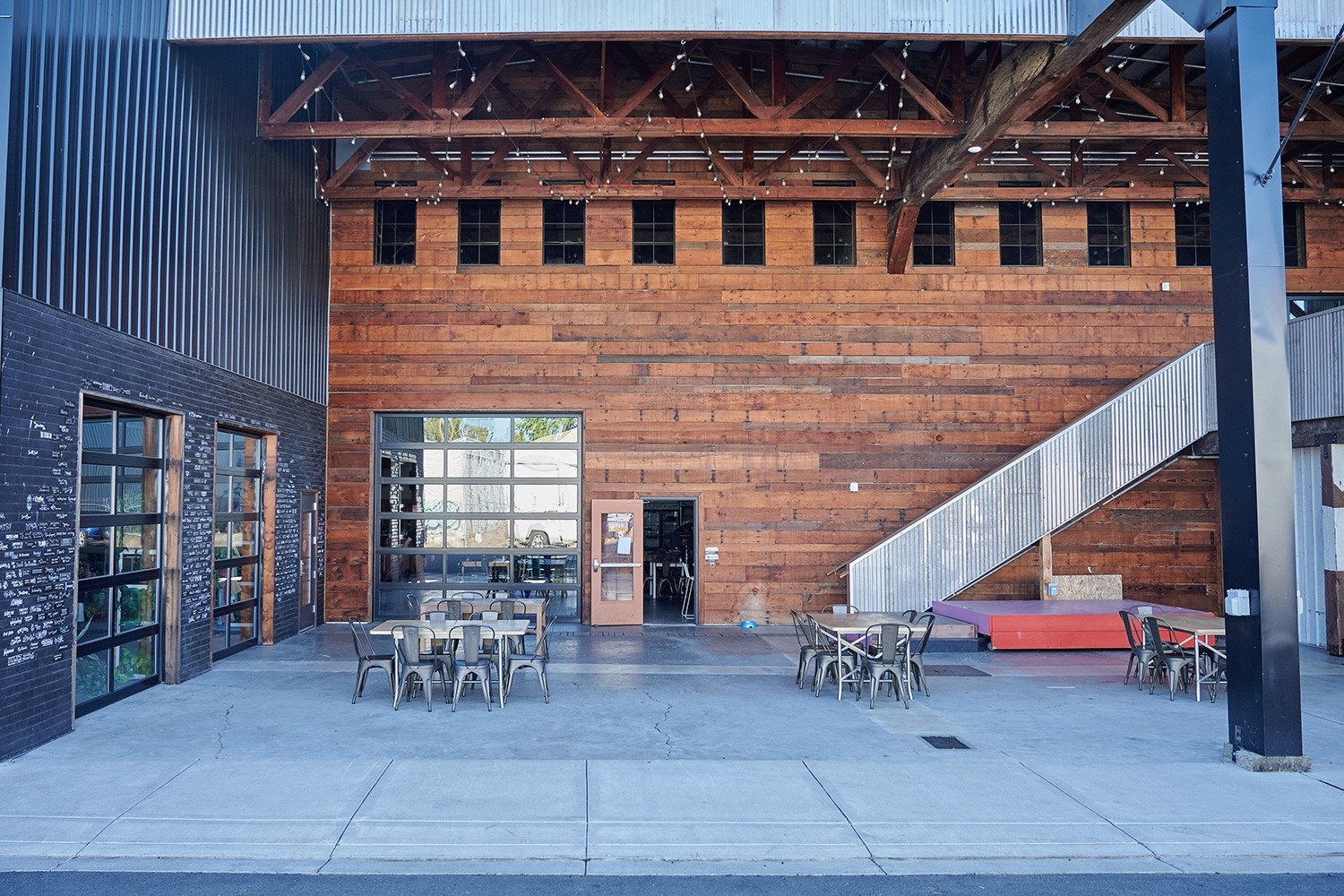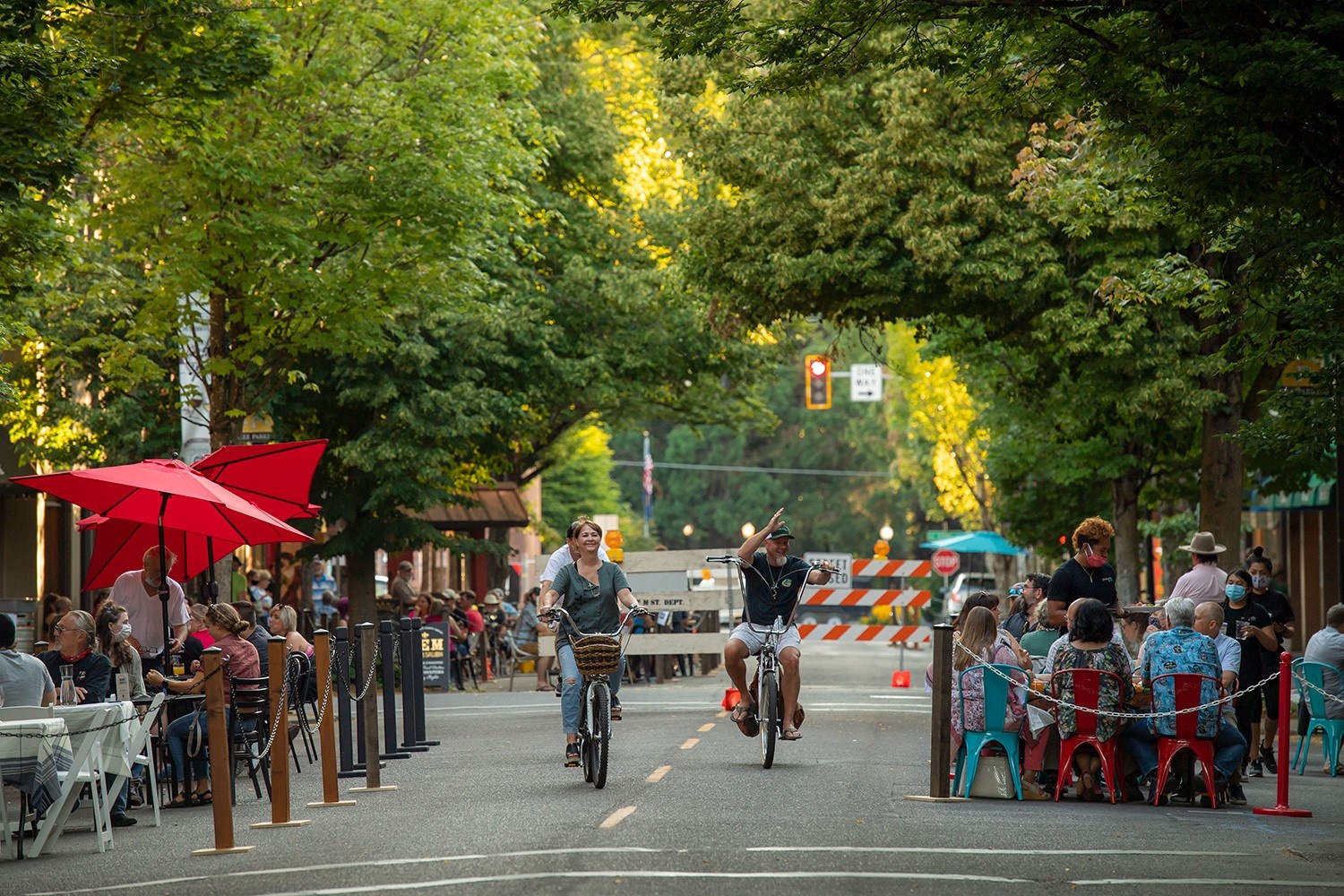Forested hills, small farms, and a collaborative winemaking culture shape the Willamette Valley. Sustainability here is measurable, certified, and built into everyday decisions, from how grapes are grown to how inns are heated. Stay on a working farm, bike to your next tasting, or find your way to a morning bakery bar.
In the Willamette Valley, you can sip Pinot in a plush robe while solar panels hum overhead. These hotels keep things cozy and conscious, whether you’re staying in a restored Craftsman in town or waking up on a working farm.
In Willamette Valley, nothing goes to waste — not even your leftovers. Some restaurants send scraps to bug farms that turn compost into protein and soil. Others butcher whole animals, pickle everything, or grow what they plate. Whether you’re grabbing a pastry or sitting down for a tasting menu, the food, like wine, reflects both time and place.
In the Willamette Valley, sustainability means more than cover crops and compost. It’s a full-circle view of the world — from how the vines are farmed to how people gather around the table. Organic farming matters, but so do community festivals, shared spaces, and who gets a seat at the tasting bar.
You don’t need another souvenir. But in the Willamette Valley, you might want one. Small-batch jam made from local berries, lavender grown down the road, or used books with notes in the margin might tempt you — guilt-free.
In the Willamette Valley, festivals celebrate more than wine. From truffle foraging to AAPI and Queer Wine events, this is a region where food and community go hand in hand. Beyond the tasting rooms, you’ll find bird-filled wetlands, bike routes through farmland, and forest trails just minutes from town.


